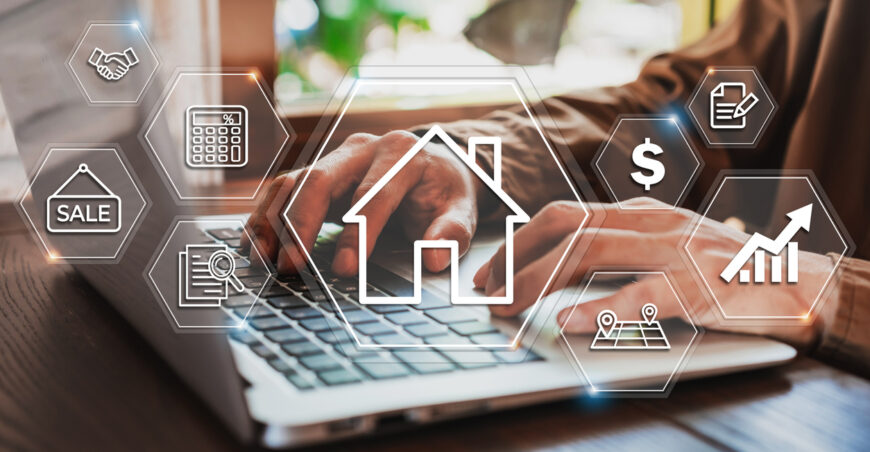In today’s fast-paced world, the impact of technology can be felt in nearly every industry, and commercial real estate property management is no exception. The integration of technology into property management practices has not only streamlined operations but also improved tenant experiences and boosted the bottom line for investors. In this article, we’ll delve into the significant impact of technology on property management, highlighting its benefits and discussing how industry professionals can harness its potential.
Streamlined operations and efficiency
Technology has revolutionized property management by streamlining various processes. Property management software, for instance, allows professionals like you to centralize data, automate tasks, and optimize workflow. This not only saves time but also reduces the margin of error, improving overall operational efficiency. Tasks such as rent collection, maintenance requests, and financial reporting have become more efficient and hassle-free.
Data-driven decision making
In the world of investment sales, data is power. Technology has simplified the gathering and analysis of data concerning property performance, market trends, and tenant choices. Advanced analytical tools offer crucial insights, aiding property managers in setting rental prices, uncovering ways to cut costs, and making investment choices based on the latest information.
“Leveraging technology through data collection and analysis helps identify patterns and formulate a cohesive approach to improve services and maximize market potential while reducing operational costs.” – Forbes
Enhance tenant experience
Keeping tenants satisfied is crucial for retaining long-term leases and maximizing property value. Technology is also a key player in this field. Tenant portals and apps offer user-friendly platforms for tenants to manage rent payments, submit maintenance requests, and interact with property management. These digital solutions significantly improve the tenant experience by providing swift resolutions and fostering better communication between tenants and property managers.
According to Real Trends, “AI can also be used to assess pricing trends and make corresponding predictions and analyses. This saves property managers, landlords, or Realtors time and effort by doing most of the research for them”.
Smart Buildings
The rise of IoT (Internet of Things) has given birth to smart buildings. Internet of Things (IoT) gadgets can remotely oversee and manage various building systems, including HVAC, lighting, and security. This capability not only boosts energy efficiency but also enables proactive upkeep. As a result, it cuts down on operational expenses and boosts the value of the property.
Read this article to have a broader understanding of how future buildings are set to become an even more integral part of our work-life balance, creativity, and productivity.
Virtual Tours and Augmented Reality
Virtual Reality (VR) and Augmented Reality (AR) technologies have transformed the way properties are shown and toured, greatly enhancing the leasing and buying process. Now, potential tenants and buyers have the convenience of remotely exploring properties, which is a significant time and resource saver. This advancement is especially beneficial in the current global market, where remote transactions are increasingly common.
Marketing and tenant acquisition
The impact of technology extends to marketing and leasing properties. With the advent of online listing platforms, immersive 3D virtual tours, and targeted social media advertising, showcasing properties to prospective tenants has become more efficient. This modernization has streamlined the leasing process and contributed to shorter vacancy durations.
Remote Management
The ability to remotely manage properties has emerged as a transformative development in the commercial real estate sector, especially in the aftermath of global events like the COVID-19 pandemic. New technology has greatly changed how property managers work, letting them manage properties from almost any place. This change has been very important for keeping businesses running smoothly, even during tough times
Challenges to consider
While technology has brought numerous benefits to property management, it has also raised cybersecurity concerns. With the increasing reliance on digital platforms, protecting sensitive tenant and property data is paramount. Property managers need to invest in robust cybersecurity measures to safeguard against potential threats and data breaches.
In conclusion, the impact of technology on property management in the commercial real estate sector is undeniable. It has transformed how properties are managed, improving efficiency, enhancing tenant experiences, and providing valuable insights for investors in commercial real estate. Embracing these technological advancements is not just a choice; it’s a necessity for staying competitive in the dynamic world of commercial real estate.
If you are interested in learning more about office property investment or the commercial real estate market, feel free to reach out to us at ICRE Investment Team anytime. We’d be happy to help supply you with information on any relevant properties or markets, alongside any connections in lending, investing, or consulting that you might need!
















